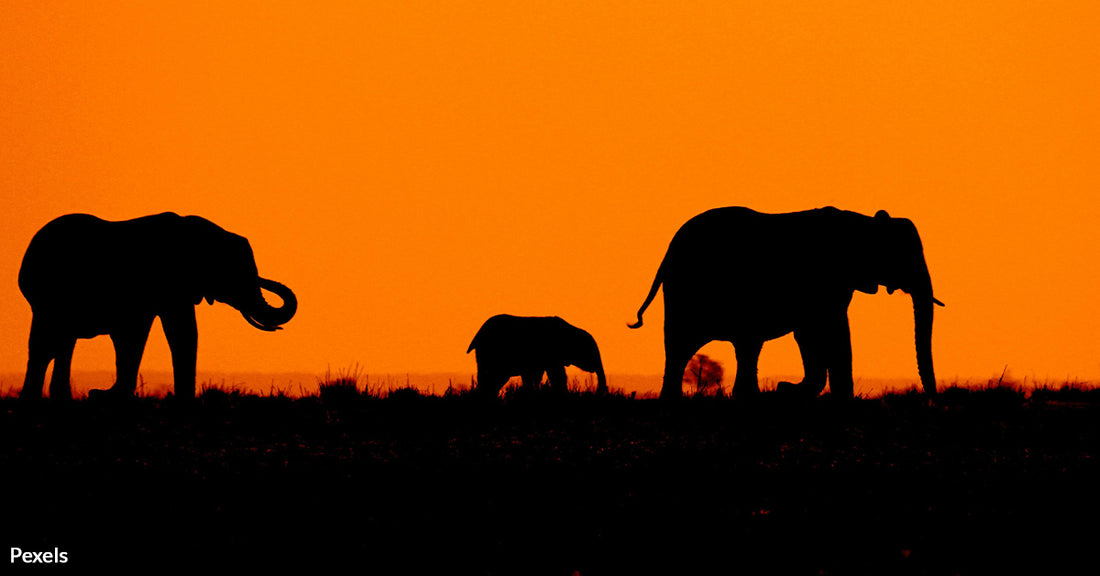From the Savannah to the City Botswana’s 20,000 Elephant Offer Shocks Germany
Matthew Russell
Botswana has put forth a daring proposition to Germany: the relocation of 20,000 elephants amidst a brewing diplomatic spat over trophy hunting regulations.
This bold offer by Botswana's President, Mokgweetsi Masisi, underscores a complex intersection of wildlife conservation, local economies, and international diplomacy.
 Photo: Pexels
Photo: PexelsBotswana has offered 20,000 elephants to Germany.
The Heart of the Matter
The crux of this diplomatic tension lies in Germany's proposed tightening of regulations on the import of hunting trophies, a move that Botswana contends could have detrimental impacts on its local communities. President Masisi, in a statement to the German newspaper Bild, emphasized the substantial growth of Botswana's elephant population due to successful conservation efforts, stating that the current count stands at approximately 130,000, significantly straining local resources and posing risks to human safety and agriculture.
Botswana's approach to managing this overpopulation has included regulated trophy hunting, a practice reinstated in 2019 after a five-year moratorium, reports the BBC. The nation asserts that such hunting quotas are not only a source of crucial income for local communities but are also a means to maintain ecological balance.
However, the German Environment Ministry's stance on stricter trophy import rules, driven by concerns over poaching and biodiversity loss, has been met with frustration from Botswana, which views these limitations as an oversimplification of a complex issue, reports The Guardian.
 Photo: Pexels
Photo: PexelsPresident Masisi of Botswana sees this as a solution to overpopulation.
Elephants Across Continents
President Masisi's offer to "gift" 20,000 elephants to Germany is not merely a rhetorical flourish but a serious proposal aimed at conveying the gravity of Botswana's elephant overpopulation challenge. This gesture also serves as a critique of what Botswana perceives as an external misunderstanding of the intricate balance between conservation and human cohabitation with wildlife.
According to
Politico, Masisi's proposition comes on the heels of similar offers made to other nations, and a veiled threat to redirect elephants to London's Hyde Park.
 Photo: Pexels
Photo: PexelsThe country previously lifted a ban on trophy hunting in 2019.
International Reactions and Conservation Ethics
The German Environment Ministry, while not directly addressing Botswana's elephant offer, has reiterated its commitment to sustainable and legal wildlife trade practices. Meanwhile, animal rights organizations have voiced support for Germany's stance, Politico reports, advocating for a complete ban on trophy hunting and suggesting alternative revenue streams for Botswana.
It is “a hobby of rich, jaded people who have more money than morals,” a PETA spokesperson told Politico.
 Photo: Pexels
Photo: PexelsThe German Environment Ministry has not directly addressed the elephant offer.
The Way Forward
This unfolding situation raises pivotal questions about the ethics of trophy hunting, the responsibilities of nations with large wildlife populations, and the role of international regulations in conservation efforts. As Botswana and Germany continue their dialogue, the global community watches closely, recognizing that the outcome could set a precedent for how similar disputes are navigated in the future.
In a world where biodiversity is increasingly under threat, the balance between conservation, local livelihoods, and international cooperation remains a delicate dance. Botswana's audacious offer to Germany not only highlights the challenges of managing elephant populations but also invites a broader discussion on the responsibilities and ethics of wildlife conservation in the 21st century.
Click below and take a stand for these magnificent animals!

